Dùn Ad – fort on the [river] Add
Discover the Gaelic Kingdom of Dál Riata and the royal centre of Dunadd – a stunningly beautiful hill fort in modern day Argyll, where a footprint in the rock marks the inaugural spot where the Gaelic kings were symbolically married to the land they were to rule – a consort to the female nature spirit which the Gaels worshipped from pagan times. (BBC)
I discovered Dunadd more or less by accident, the night before at Bellanoch I was browsing the Historic Environment Scotland looking for something else when I realised that Dunadd was just a few miles away from me. When I arrived at the tiny parking at the foot of the hill, I had it all for myself.
It´s a short but sometimes steep path uphill be careful when it´s raining or the rocks are wet.
Dunadd became the capital of the Gaelic kingdom of Dál Riata founded in the early centuries AD after the Romans had left the area and Irish settled in western Scotland. It might have been an island until the sea levels went down in the 6th or 7th century and left the fort open to siege and seizure.
Already occupied in the Iron Age it became the seat of the Gaelic kings, it´s known for “unique stone carvings below the upper enclosure, including a footprint and basin thought to have formed part of Dál Riata’s coronation ritual.” (Wikipedia) It was mentioned as a fort, seat of the kings and important place until the 16th century.
Dunadd Fort rises proudly from Moine Mhor – the ‘great moss’ – an expanse of bog that carpets the southern end of Kilmartin Glen. It was home to a fort 2,000 years ago, and a royal power centre of Gaelic kings in the 500s to 800s AD.
Below the mighty fort site are some extraordinary features carved into the rock, including two human footprint shapes – similar to a pair found at Clickimin Broch. (Historic Enviroment Scotland)
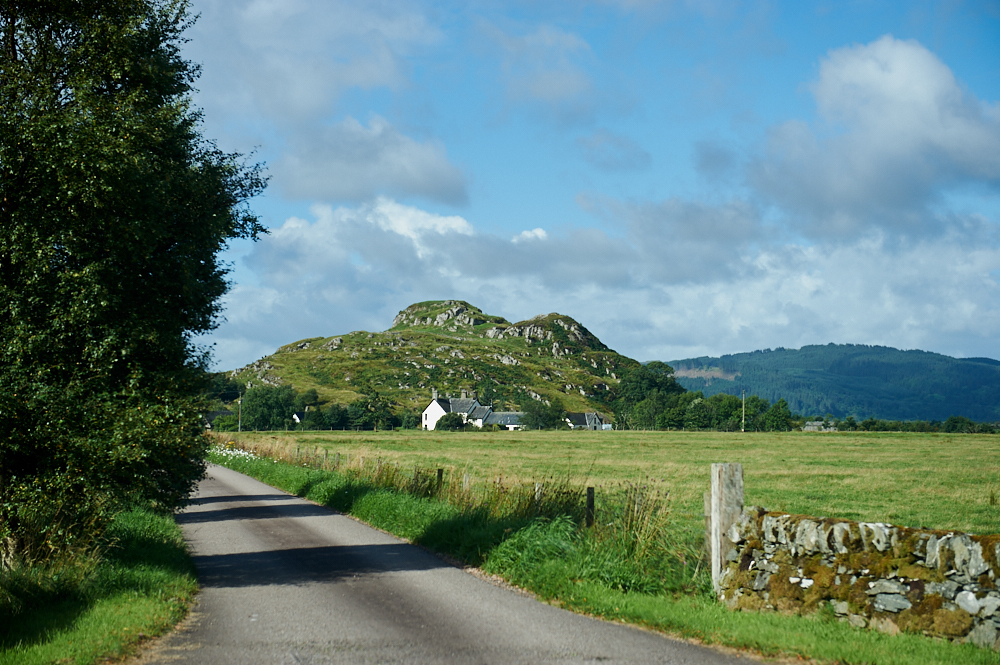
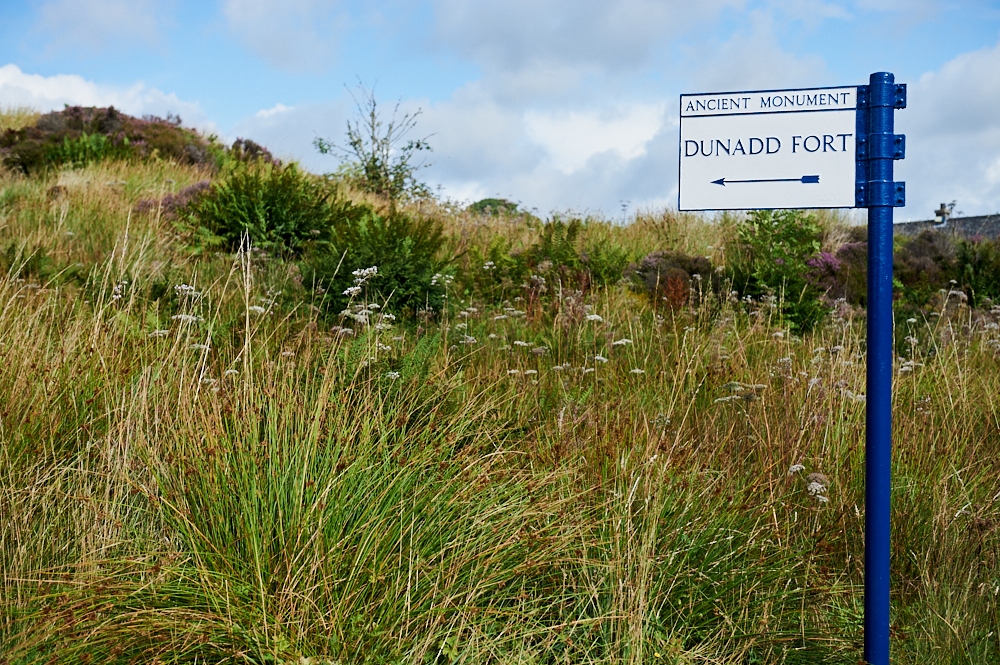
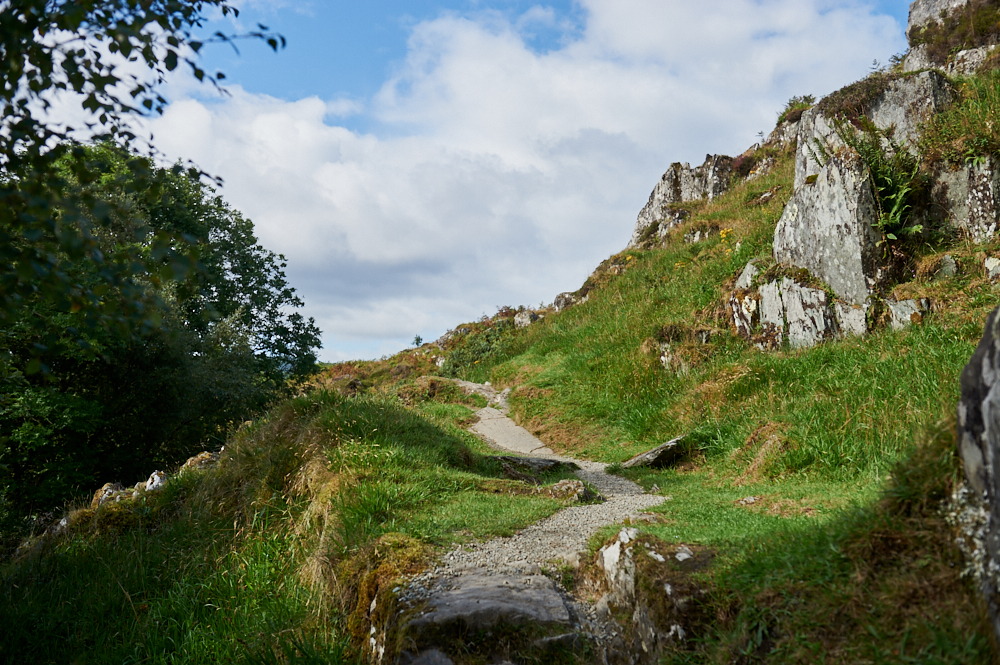
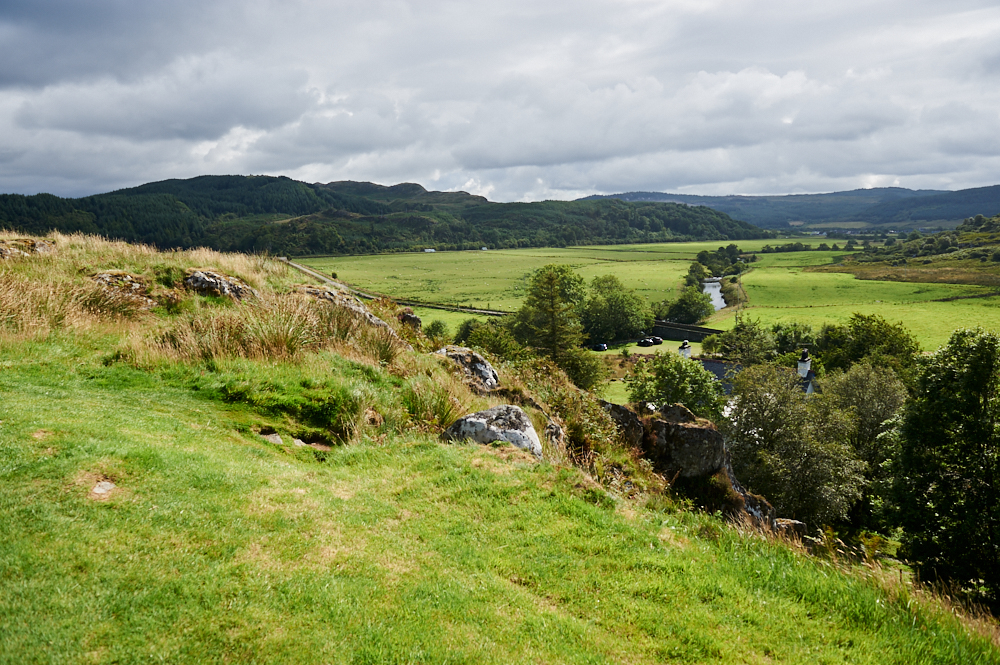

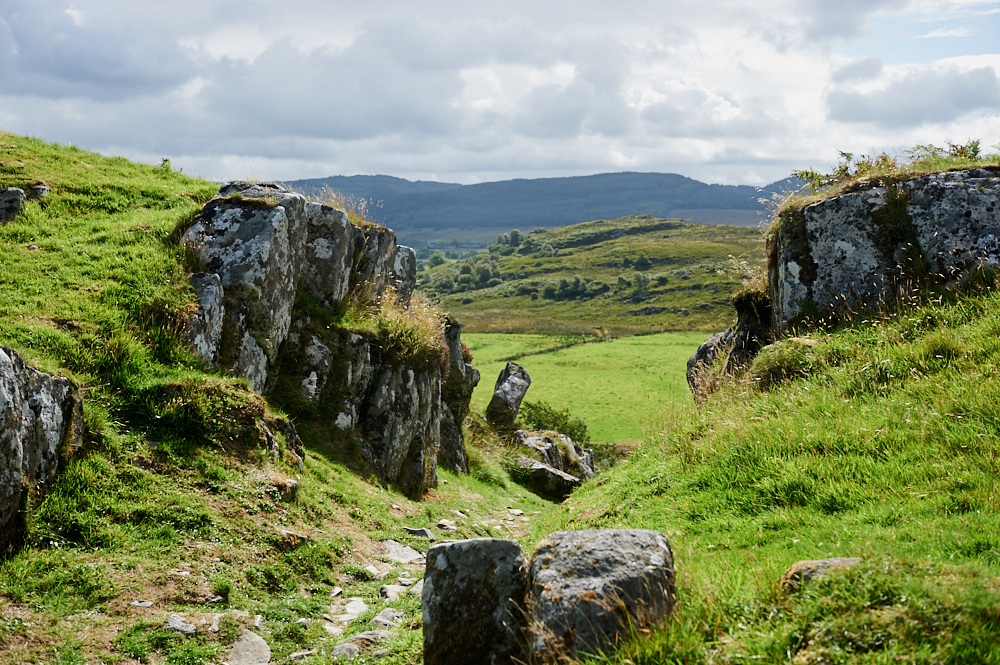
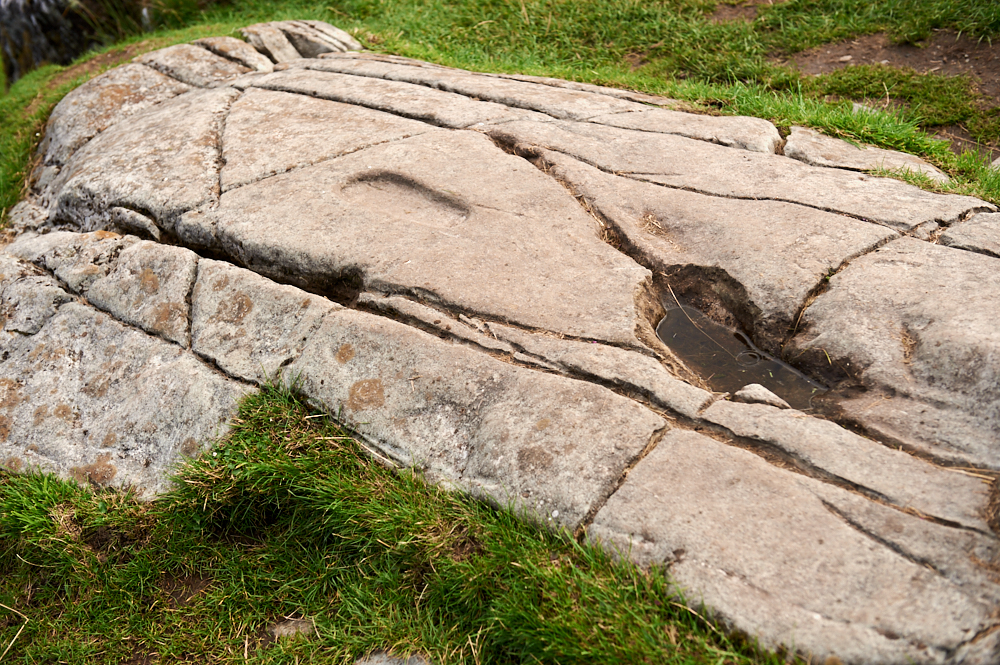
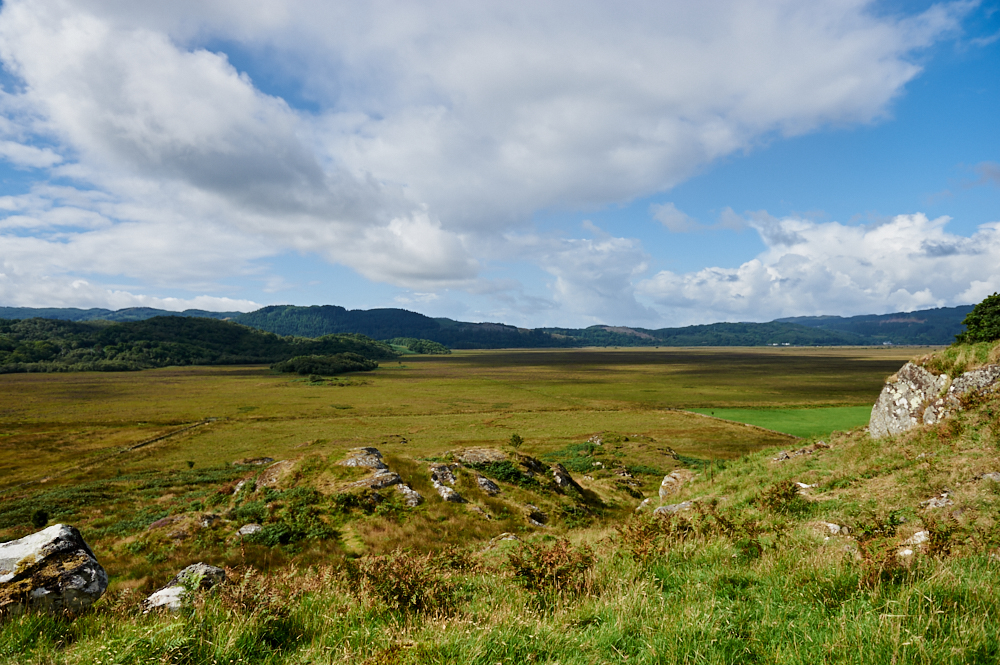
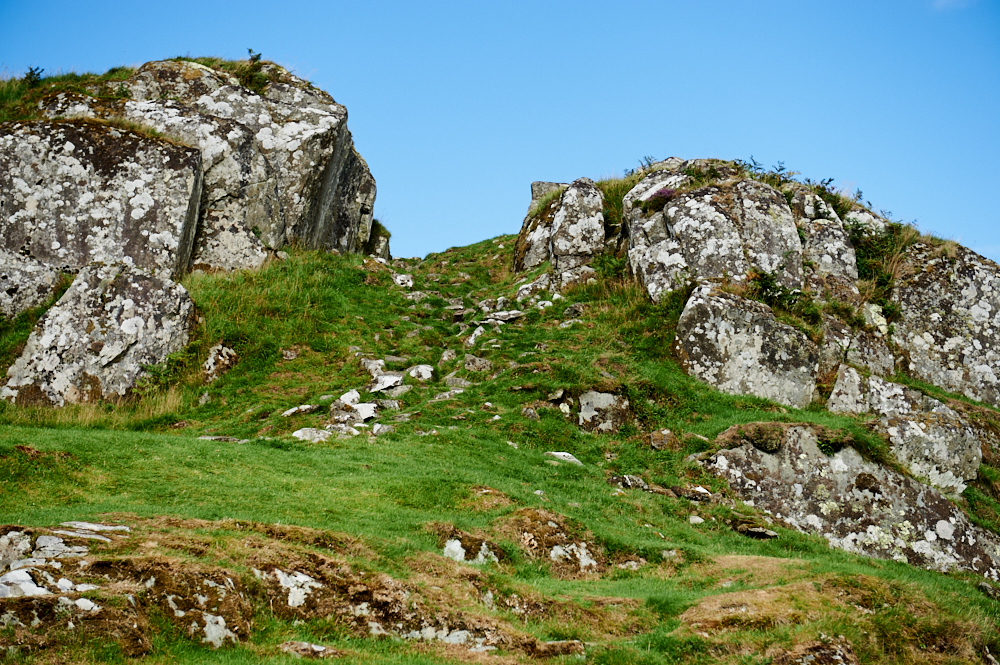
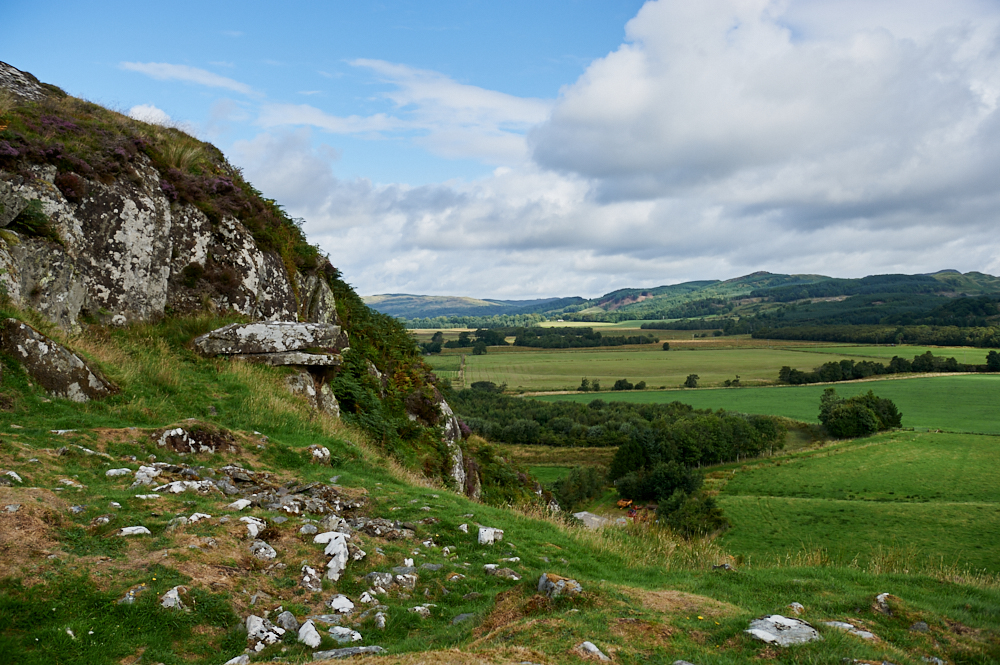
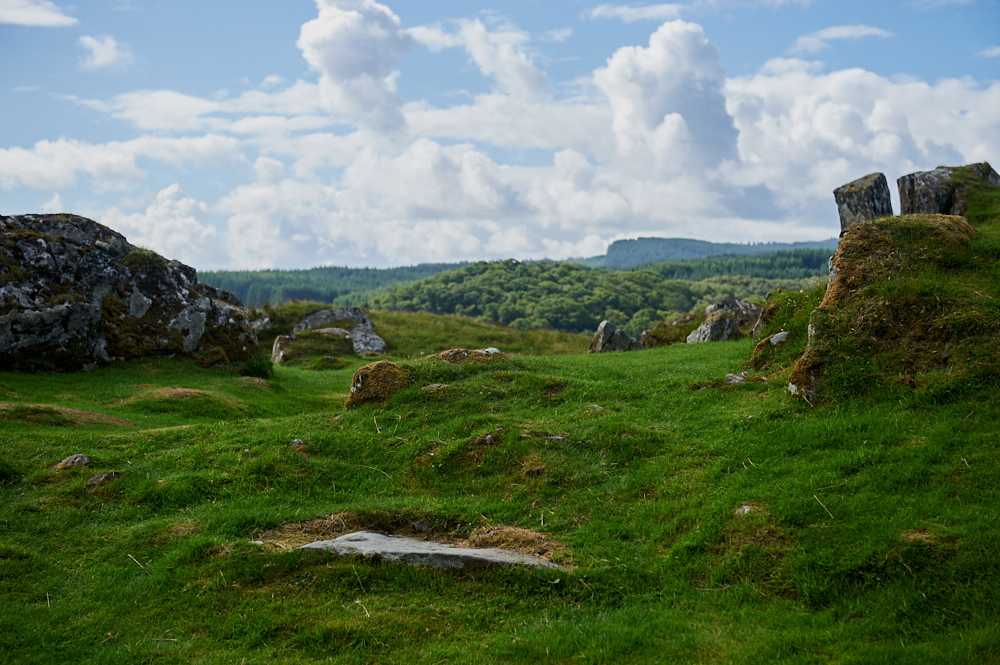
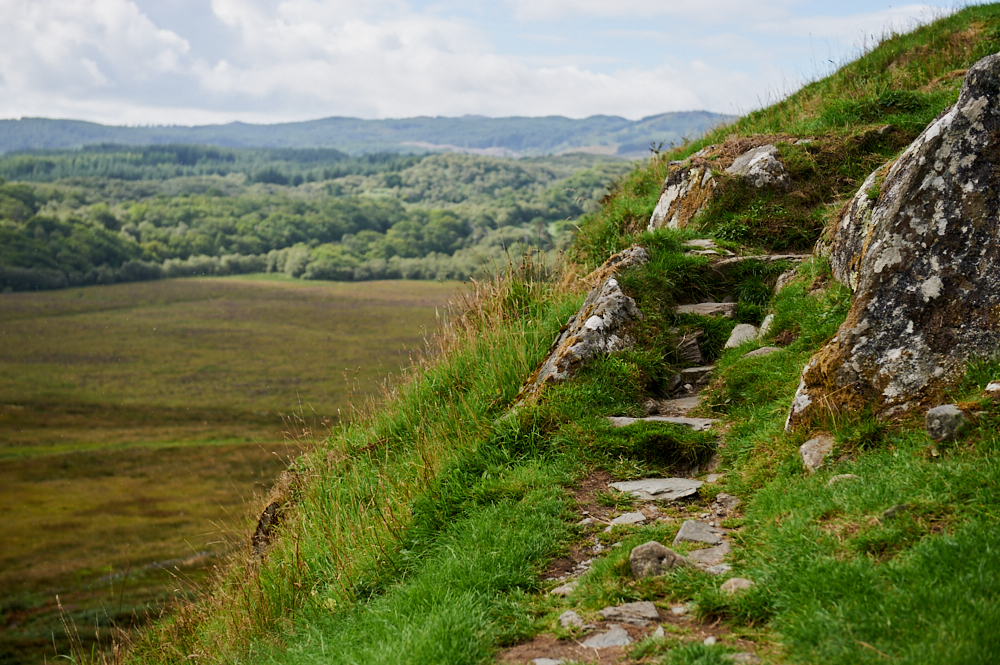
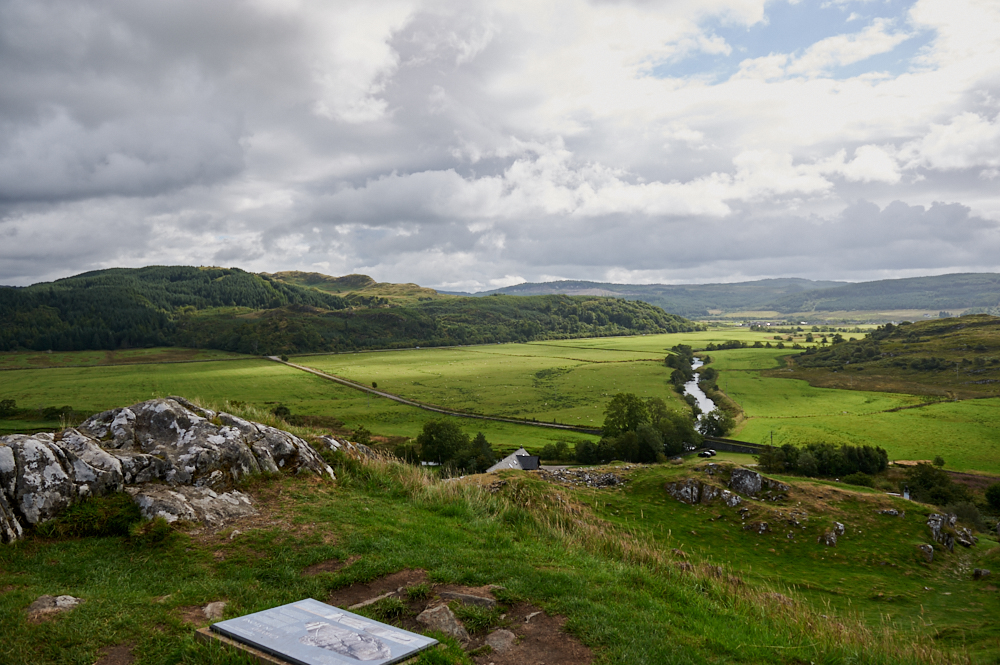
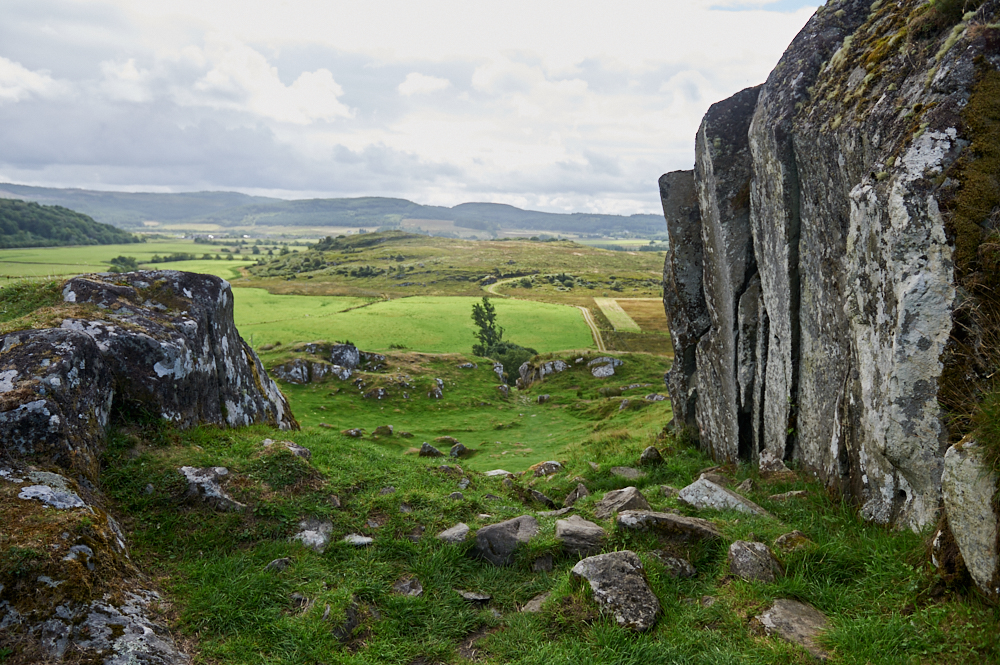
Leave a Reply